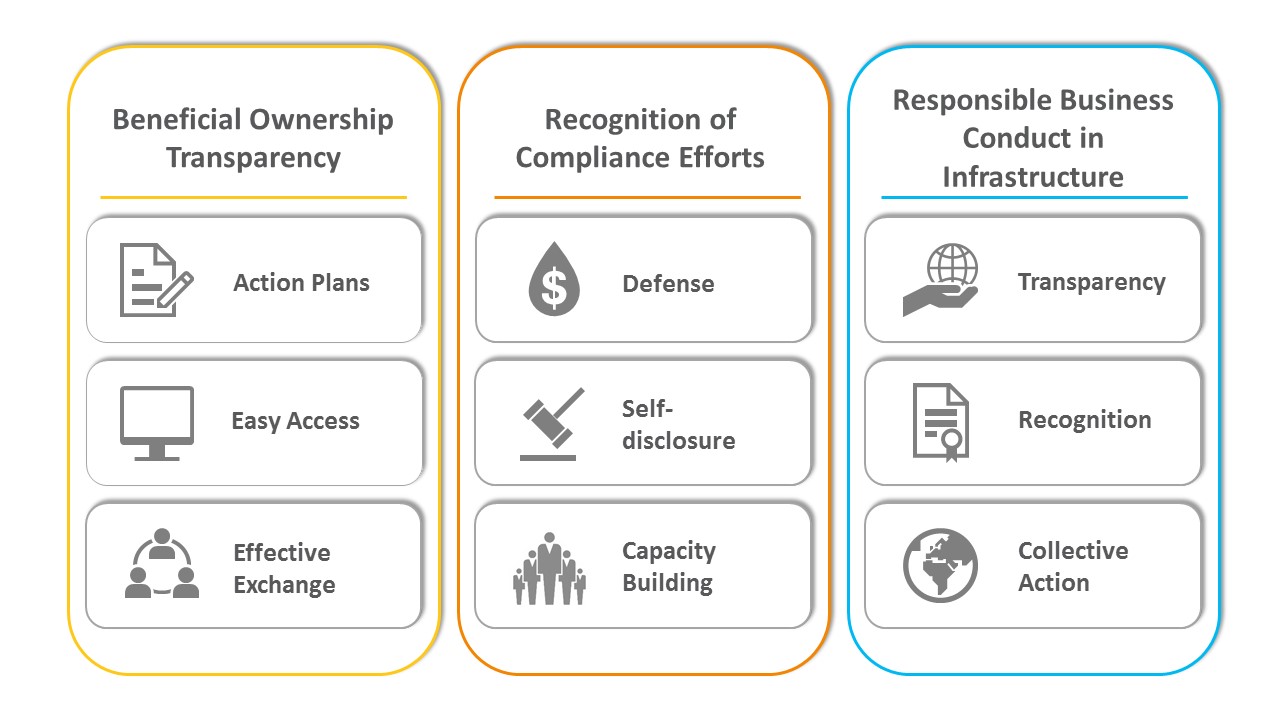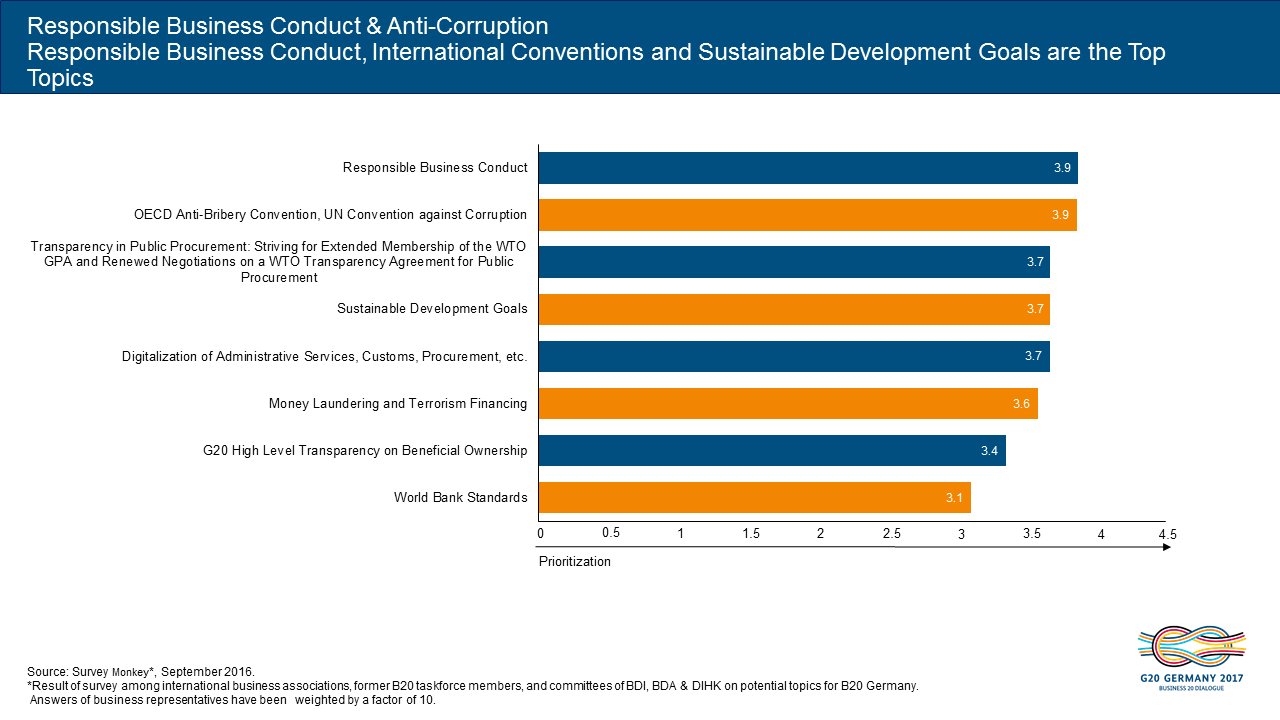Responsible Business Conduct & Anti-Corruption
To raise standards of living economic growth is indispensable. Job creation, training, and education, innovation and technology development – business plays an integral part in improving living conditions around the globe. Foreign direct investment can positively contribute to local economic development.
Around the world, countless companies are committed to responsible business conduct on social and environmental fronts, improving health and safety at work, living conditions, society, environment, and consumer welfare. More and more companies are integrating this concept in their value chains.
An important aspect of responsible business conduct is fighting corruption. Corruption reduces efficiency and increases inequality. It distorts the efficient allocation of resources. It raises the costs of doing business. It undermines the trust in governments and erodes the rules of law.
According to the World Economic Forum the cost of corruption equals more than five percent of global GDP (US$ 2.6 trillion). Much has already been done to fight corruption. But we can do better. B20 Germany thus decided to establish a Cross-thematic Group on Responsible Business Conduct and Anticorruption this year.
How can we ensure transparency in government procurement? How can governments adapt administrative procedures and customs transactions to the age of digitalization? These are just two of the questions we want to tackle under Germany’s B20 Presidency.
B20 Focal Areas
Beneficial Ownership Transparency is essential if you want to know who really owns and controls an organization. Governments need to turn their strong commitment into action and ensure timely and effective implementation. This will shed light on opaque corporate set-ups that allow to disguise and convert the proceeds of illegal activity. It will also help organization to understand who they are dealing with.
Compliance efforts by companies need to be recognized by governments. B20 calls for support in tackling the supply side of corruption. Governments should explore ways of acknowledging effective compliance systems and voluntary self-disclosure. This will help to transform Responsible Business Conduct from a possible disadvantage into a competitive advantage.
Responsible Business Conduct in infrastructure projects helps to address the variety of risks inherent to public procurement. Collective action of Governments, business and civil society can reduce corruption, cost overruns, delays and the lack of private financing. B20 is part of the solution and will help to achieve quality infrastructure.


